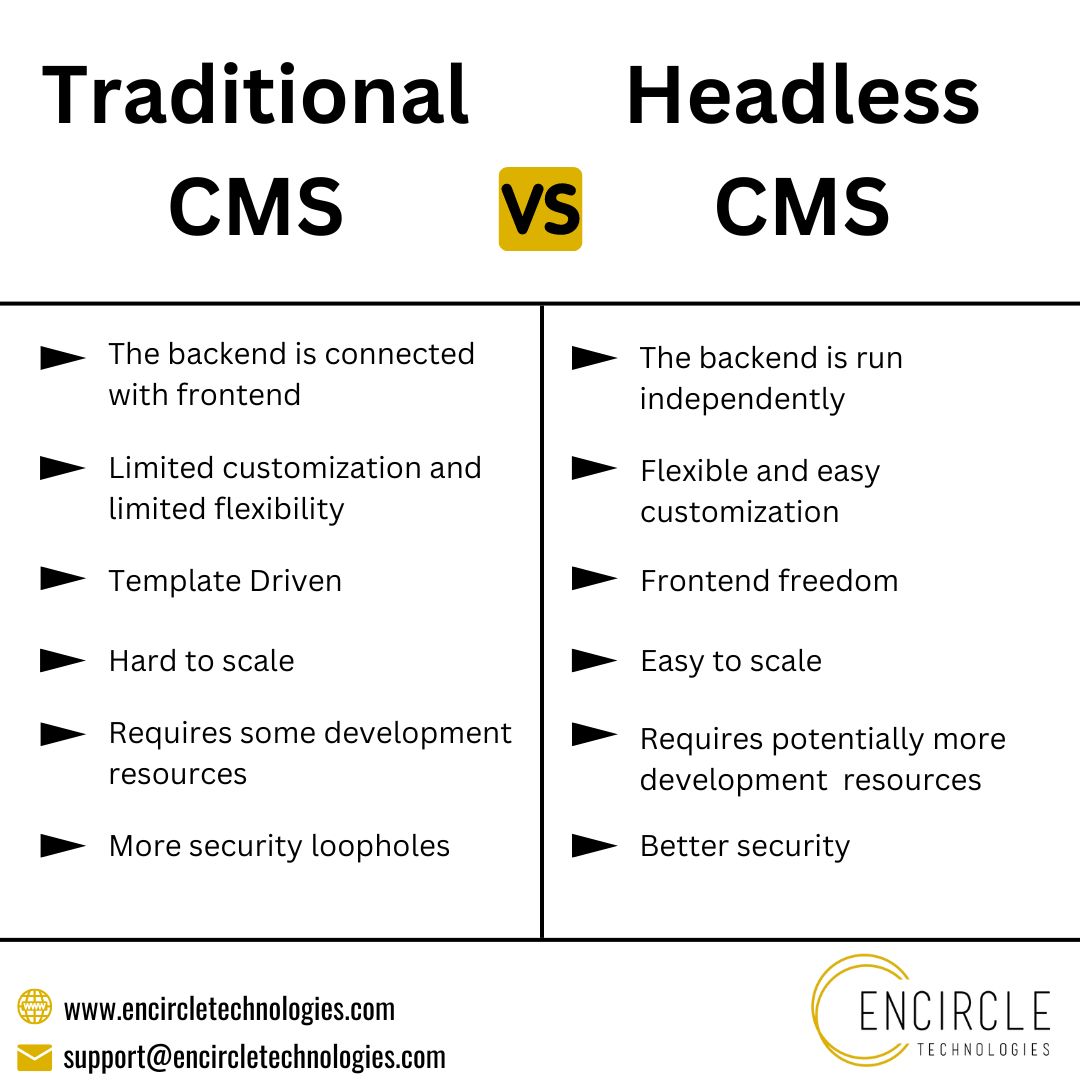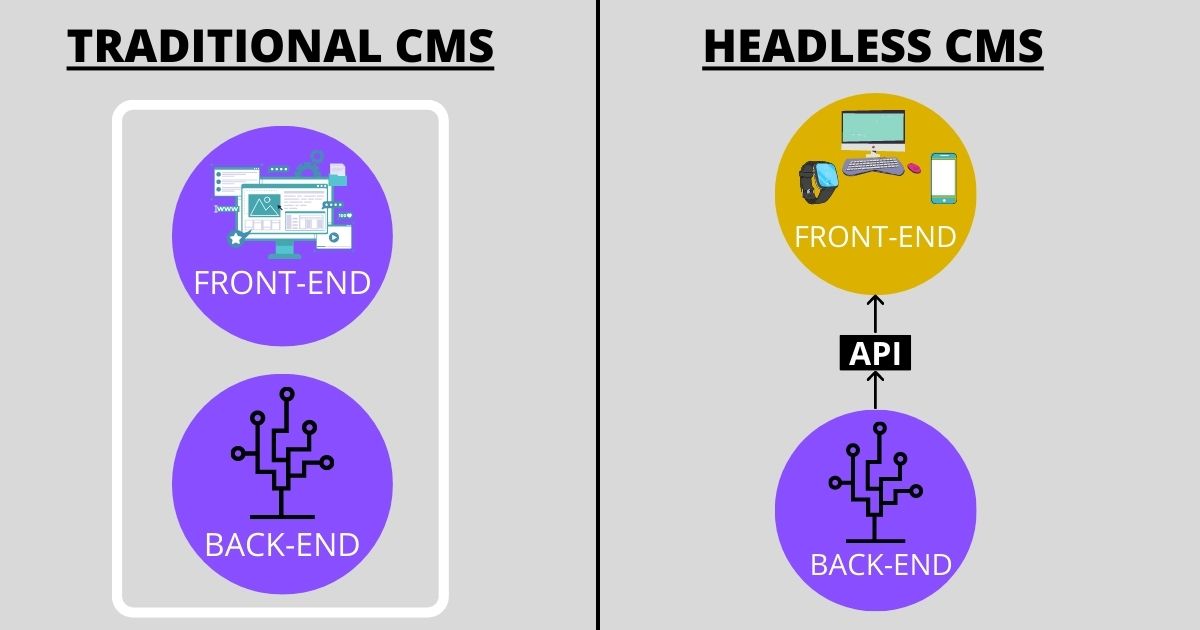CMS (content management system) platforms like WordPress allow users to create, edit, collaborate on, store, and publish web content.
In the web development industry, headless CMS has become a buzzword.
While traditional CMS has front-end and backend coupled together, going headless provides flexibility to manage the front end and backend of the website separately.
If you are planning to build a new website, you might be confused between traditional and headless CMS. In this post, we will compare both and help you select the right one.
Traditional CMS
A traditional CMS is a monolithic content delivery system in which the frontend and backend are coupled together. Though headless CMS is getting attention these days, traditional CMSes like WordPress are still popular among users.
The main reason is the lower technical barrier for entry. You don’t need to be a great programmer in order to build a website using traditional CMS like WordPress. Thus, if you are a small business planning to build a website, you can consider a traditional content management system.
It provides various templates and pre-built themes so that someone with low technical background can also use it. Due to already-built templates, you don’t have to design from scratch.
Headless CMS
Headless CMS is when the frontend and backend are separated from each other. While traditional CMS limits you to manage everything from one place, headless CMS provides the flexibility to deliver content to multiple channels. For that, APIs (application programming interfaces) are used. Backend issues in headless CMS won’t affect the front-end.
Traditional CMS, fails to stay with the technological advancements. With the increase in digital platforms, it’s important to reach out to customers via different channels. This is where headless CMS helps.

Pros of Headless CMS
- Flexibility: While traditional CMS is rigid as frontend and backend are coupled together, headless CMS offers great flexibility by decoupling them. It offers the flexibility to build your own front-end.
- Security: Security is one of the reasons why many businesses started migrating to headless. It provides enterprise-grade security; making it more secure as compared to traditional CMS.
- Scalability: Traditional CMS lacks scalability. With headless CMS, scalability isn’t the issue. As the frontend is separated from the backend, there will be no downtime.
- Developer-friendly: With a headless CMS, you are free to choose frameworks, tools, programming languages, etc. of your choice.
- Faster loading speed: Slow loading webpage is the biggest enemy of search engines as well as conversions. Even if your website gets some traffic, due to slow loading, users will leave without taking any action. Headless CMS will make your website faster due to the latest technologies and rendering methods.
- Omnichannel freedom: Unlike traditional CMS, headless CMS does not limit to content delivery channels supported by the CMS. It means your web content can be delivered in all channels, including mobile phones, smart watches, AR/VR, etc.
- Faster TTM: It connects the frontend with the backend using API. As a result, it ensures a faster time to market (TTM).
Cons of Headless CMS
- Expensive: Compared to conventional CMS, starting up a website with headless CMS is quite expensive. Besides CMS, you will be paying for developers, front-end infrastructure, etc.
- Design from scratch: Unlike traditional CMS, headless CMS doesn’t have any pre-built themes or templates. As a result, you need to work on it from scratch.
- Not for non-technical: In order to manage a headless CMS, you need skilled developers. For example, if you are a small business owner who wants to build a website, headless CMS may not be the right choice.
Is Headless CMS The Future of Content Management?
Yes! It’s the future of content management. While traditional CMS offers a single solution for both, the front-end and backend, headless CMS goes beyond by separating the website’s front-end from its backend.
It leverages an API-driven approach for the communication between the front-end and backend. API also makes it easier to make content available on multiple channels. As a result, your business can be present on a wide array of digital channels (like mobile phones, smart watches, AR/VR, etc.) without taking too long.
You should definitely consider using headless CMS if you want to expand your content across multiple platforms and scale your business.
